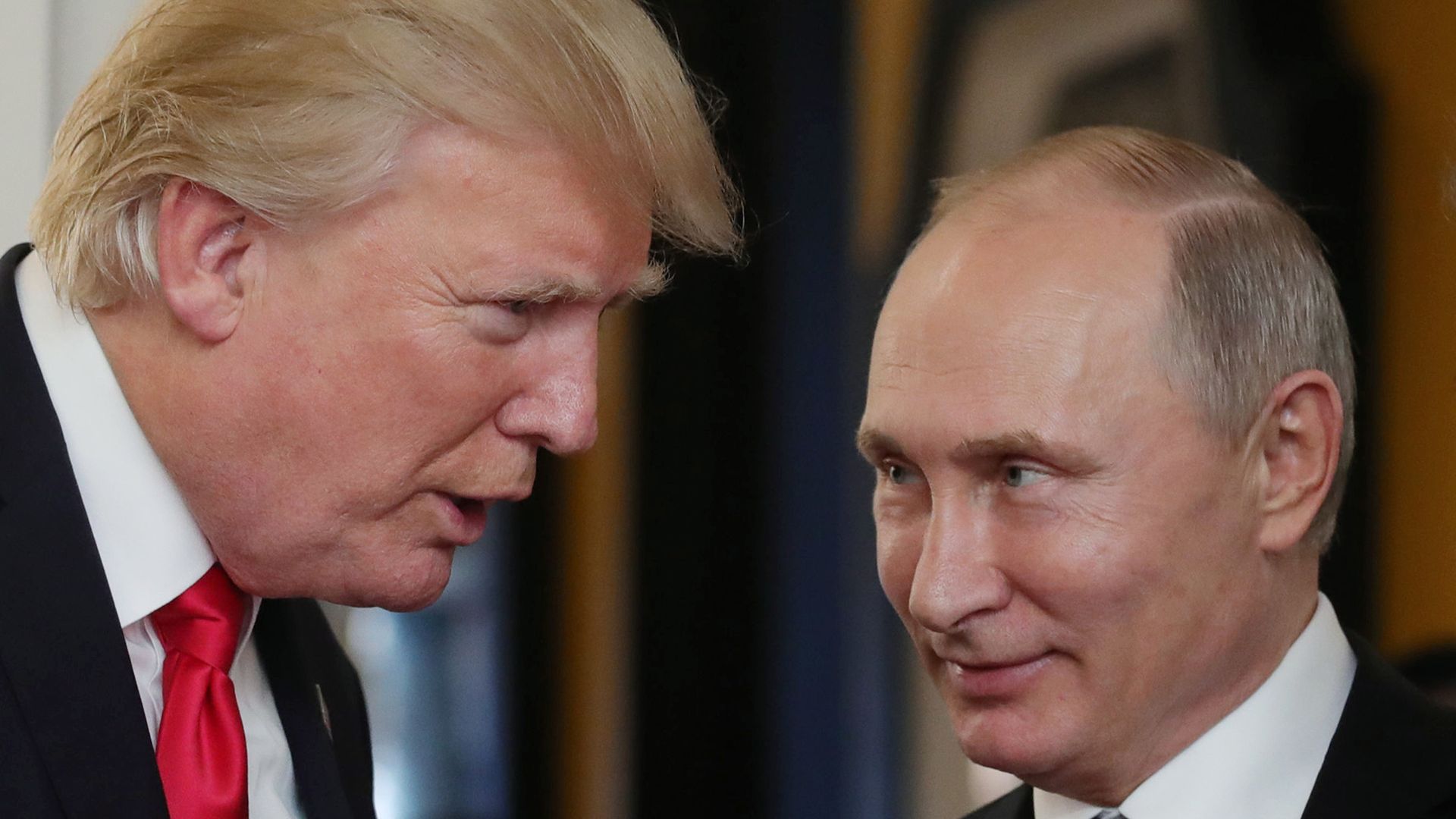Updated Jul 9, 2018 - World
Expert VoicesHelsinki summit a chance for Trump to press Putin on non-interference
Add Axios as your preferred source to
see more of our stories on Google.

President Trump and President Putin at the APEC leaders' summit in Danang, Vietnam, on November 11, 2017. Photo: Mikhail Klimentyev/AFP/Getty Images
